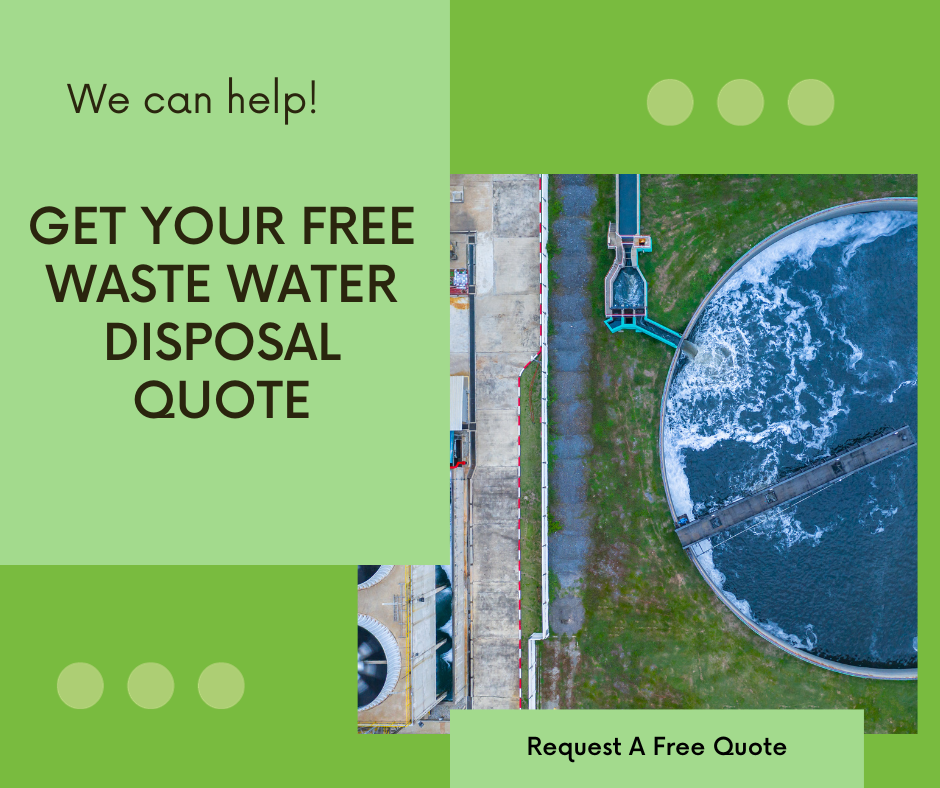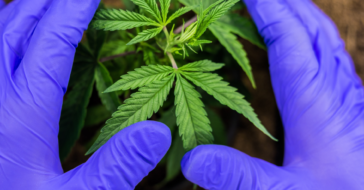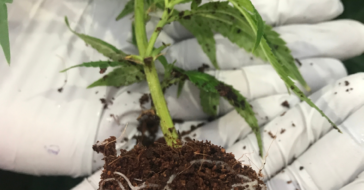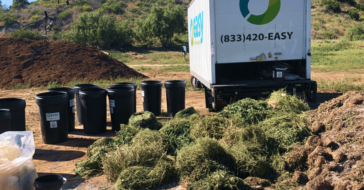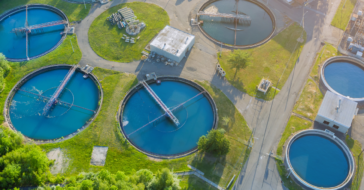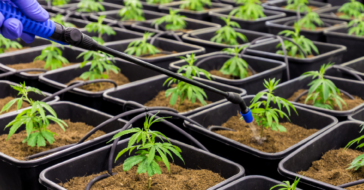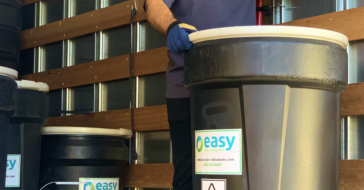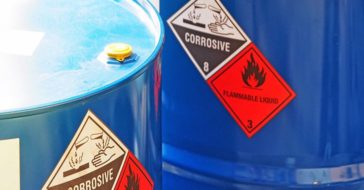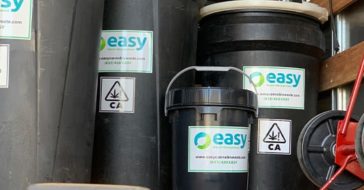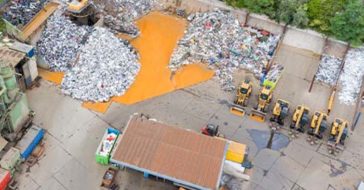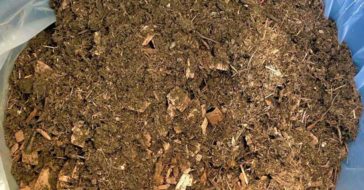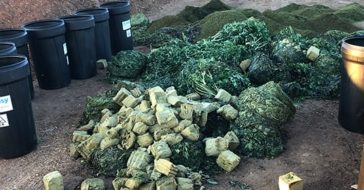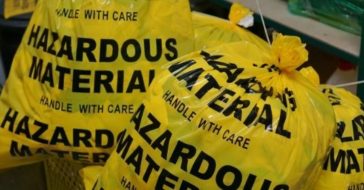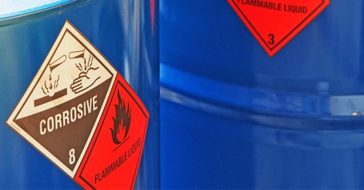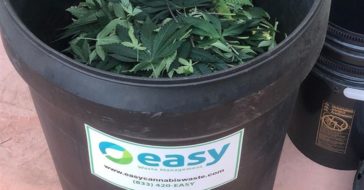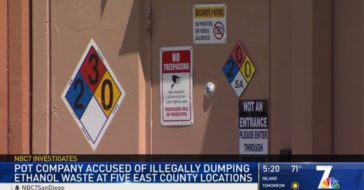As the cannabis industry continues to expand and mature, so do the challenges associated with its environmental impact. One often-overlooked aspect is the treatment of wastewater generated during the cultivation and processing of cannabis.
Wastewater is generated during the cannabis cultivation process primarily through irrigation and the runoff of excess water. During the processing process, wastewater is generated when cannabis plants are harvested, trimmed and extracted to produce a variety of products like oils, tinctures and edibles.
This wastewater often contains nutrients, pesticides, and other contaminants from these processes, making its proper treatment and disposal crucial for environmental sustainability.
As a cannabis business, you likely have a cannabis waste disposal process in place. It’s critical that you focus on the wastewater treatment process as much as other components of waste management to ensure you are meeting ALL regulatory standards.
Waste water generated during the production and processing of marijuana or cannabis is considered illegal to dump down the drain or into waste areas where the water can seep into soil and waterways … opening the door to possible costly fines and damaging publicity.
Here’s what you need to know about the role of wastewater in the cannabis cultivation process, and some disposal strategies you should have in place to ensure your company doesn’t face the ire of federal or state investigators.
The Environmental Impact Of Cannabis Cultivation
Cannabis cultivation and processing can be water-intensive processes, especially when conducted on a large scale. This high water usage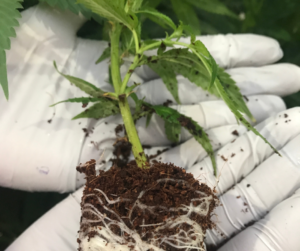 generates significant volumes of wastewater that often contain a mix of organic matter and compounds, nutrients and other pollutants.
generates significant volumes of wastewater that often contain a mix of organic matter and compounds, nutrients and other pollutants.
If not managed properly, this wastewater can pose serious environmental risks, including these below:
- Nutrient Pollution: Cannabis plants require specific nutrients to grow and flourish. Excess nutrients in wastewater, such as nitrogen and phosphorus, can lead to nutrient pollution in water bodies. This can cause harmful algal blooms, disrupt aquatic ecosystems and harm aquatic life.
- Contaminant Discharge: The wastewater from cannabis facilities may contain residual pesticides, herbicides and other chemicals used in cultivation. Discharging these contaminants into natural waterways can have detrimental effects on aquatic organisms and water quality.
- Soil and Groundwater Contamination: Improper disposal of cannabis wastewater can lead to soil and groundwater contamination, affecting nearby agricultural and residential areas. The chemicals and nutrients present in the wastewater can leach into the soil and eventually reach groundwater.
Why Cannabis Waste Water Treatment Needs Disposal
Regulatory agencies are increasingly recognizing the need for strict oversight of cannabis wastewater management. Focusing on wastewater, rather than overlooking it, can offer the following benefits:
- Environmental Protection: The primary reason for disposing of cannabis waste water is to protect the environment. Treating and disposing of wastewater in an environmentally-responsible manner helps prevent harm to aquatic ecosystems, reduces the risk of soil and groundwater contamination and mitigates the negative impacts of nutrient pollution.
- Regulatory Compliance: To avoid legal troubles and maintain a positive industry image, cannabis businesses must adhere to wastewater disposal regulations. Compliance ensures that your operations meet the required environmental standards and reduces the risk of facing penalties or sanctions.
- Sustainability and Reputation: Demonstrating a commitment to sustainability and responsible environmental practices can enhance your company’s reputation within the cannabis industry. Consumers and investors are increasingly drawn to companies that prioritize eco-friendly operations.
Non-compliance with wastewater disposal regulations can have the opposite effect, resulting in possible legal consequences, fines and damage to a company’s reputation. The U.S. EPA or state agencies will determine if fines should be assessed if they find that companies have committed violations.
These fines can be potentially costly, especially to small-scale cannabis companies. This table below shows possible criminal penalties at the federal level for negligently or knowingly discharging hazardous waste. If authorities determine that your waste water is in fact hazardous and can harm the environment, here are some of the penalties you may face:
Negligent violations
Penalties: 1 year and/or $2,500 to $25,000 per day
Subsequent convictions: 2 years and/or $50,000 per day
Knowing violations
Penalties: 3 years and/or $5,000 to $50,000 per day
Subsequent convictions: 6 years and/or $100,000 per day
Source: U.S. EPA; Regulations 40 C.F.R. 110, 116 & 117
Effective Cannabis Waste Water Disposal Strategies
Navigating cannabis waste water management requires a strategic approach that prioritizes both environmental responsibility and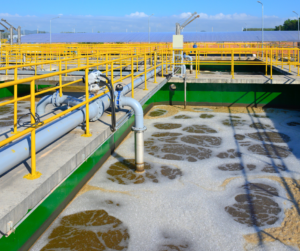 regulatory compliance. To address this critical aspect of your operations, here are some key cannabis waste water disposal strategies to consider:
regulatory compliance. To address this critical aspect of your operations, here are some key cannabis waste water disposal strategies to consider:
- Wastewater Treatment Systems: Implement advanced wastewater treatment systems to remove contaminants and reduce nutrient levels in cannabis waste water. These systems used to treat wastewater can bring this type of waste in line with regulatory requirements before disposal.
- Regular Monitoring: Continuously monitor the quality and quantity of wastewater to ensure that your treatment processes are effective and compliant with regulations.
- Proper Disposal Methods: Explore disposal methods such as land application, deep well injection or discharge to municipal wastewater treatment plants, depending on local regulations and the characteristics of your wastewater.
- Consult with Experts: Seek guidance from environmental consultants and wastewater management experts who specialize in the cannabis industry. They can help design tailored solutions for your specific wastewater management needs.
Experienced cannabis waste disposal companies can also be valuable partners in ensuring your wastewater disposal process is at their highest standards. But how do you know which disposal company is the right one for your business?
In addition to ensuring that the disposal company you are considering is licensed and legally permitted to transfer your waste water to the appropriate facility, it’s important to look for a cannabis waste management company that is well-versed in the complex and evolving regulations governing cannabis waste today.
Regulations are constantly evolving as the demand for cannabis products increases not only in California, but across the United States. Any disposal company you work with should have a deep understanding of local, state and federal requirements to ensure your waste water is managed properly.
A cannabis waste disposal company should also be familiar with the different wastewater treatment processes available to you, from filtration to biological treatments, and the facilities that offer them. That may involve transporting your waste outside your region.
Other qualities of a top cannabis waste disposal company include reliability, timeliness and security. Depending on your cannabis business, you may deal with sensitive information or proprietary processes. Ensure the disposal company can maintain that confidentiality and security of your waste materials to protect your business interests.
The cannabis industry is growing, and with it, so is the responsibility to manage its environmental impact. Proper disposal of cannabis waste water is essential to protect the environment and ensure you’re meeting all of your requirements as a member of the community. By investing in effective wastewater treatment and disposal processes, cannabis businesses can contribute to a more sustainable and responsible future for the industry.

